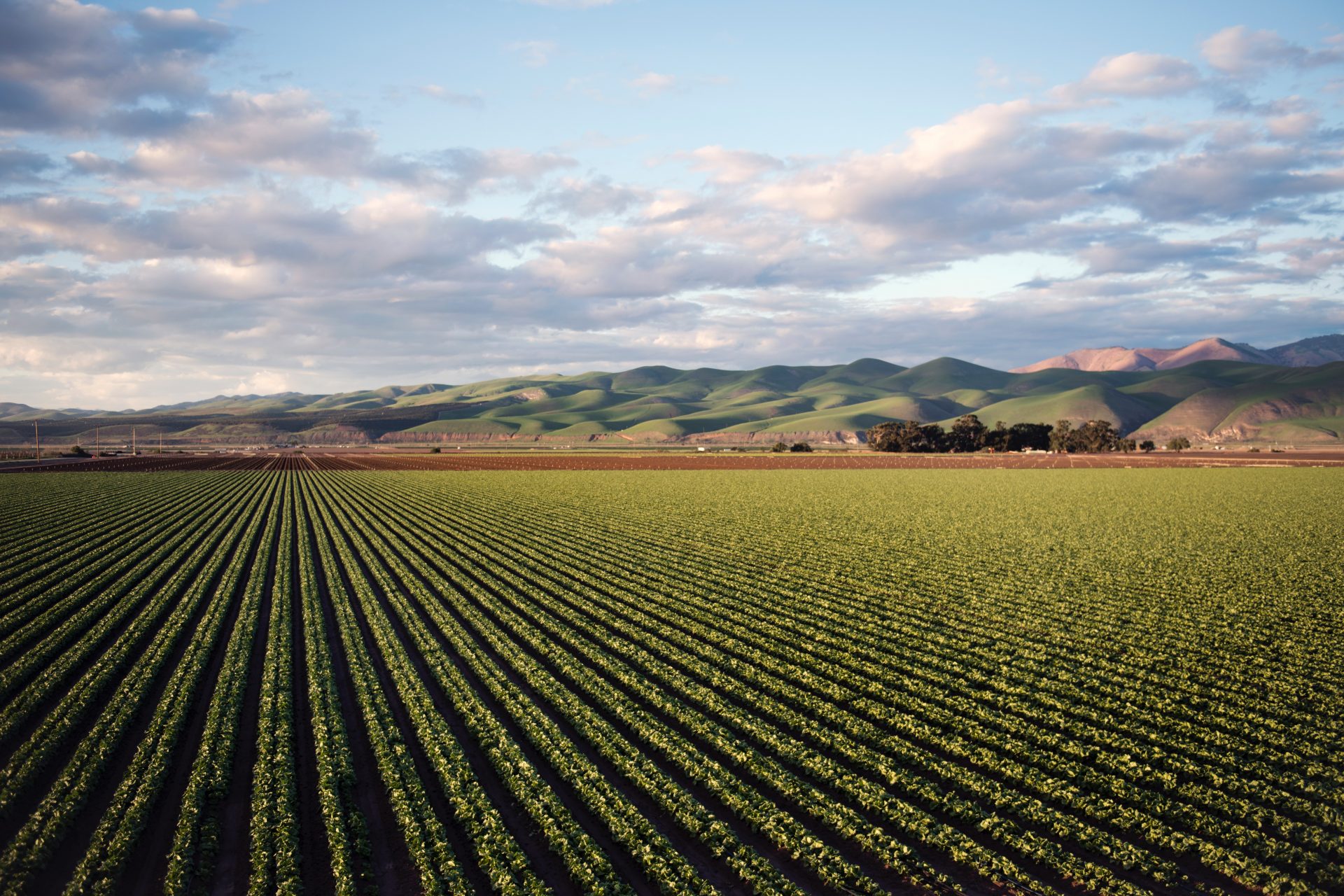Straight Rows Produce More
Every now and then, it is good to check to see if we need a course correction in our walk with God. If we aren’t careful, we can start to veer away from the straight and narrow way (Matthew 7:13-14). We might take a short excursion into the world to fulfill a longing, or to “have a little excitement in our lives.” Unfortunately, we enter into enemy territory whenever we compromise our convictions or become spiritual lazy. Our apathy and moral lapses can lead us farther and farther away from a walk of faith that pleases God. When that happens, we need to adjust our focus and correct our course.
A Lesson in Steering a Straight Course

I learned the value of keeping on course from my dad when I was still in elementary school. One day, I rode on the tractor with him in the field where he was planting potatoes. As proceed through the field, Daddy told me to look at how straight his rows were. Then he asked if I could guess how he kept going in such a straight line. Of course, I couldn’t guess, so he told me. Daddy pointed to a cluster of trees about half a mile away. He explained that he made the first row straight by keeping his eyes on those trees. After that, he just lined up the wheels of the tractor next to the previous row to make each furrow parallel with the last one.
His straight rows insured that irrigation water would get to all the potato plants. My dad expected to reap a good harvest because he kept his eyes on the trees in the distance while he planted the first row. (See more on the lessons I learned in potato fields in my blog “My Life as a Farmer’s Daughter”)
It’s Easy to Stray off Course
Life is a lot like planting potatoes. Every day, we make decisions that result in either staying on course or planting crooked rows. Will we compromise our standards in order to fit in with friends? Are we tempted to stretch the truth to impress someone? Or, does living a “good Christian life” seem too demanding? It is hard to do all the right things all the time—in fact, it’s impossible.
The writers of the psalms understood the difficulty of staying on course. They often cried out for help because they were in trouble. In some cases, the psalmist’s family was giving him fits. Or, he may have veered off the path by sinning. An enemy attack may have distracted him. King David describes a dangerous distraction in Psalm 124. He writes, “If it had not been the Lord who was on our side when people rose up against us, they would have swallowed us up alive” (verses 2-3). In the next two verses, he describes his troubles as raging flood waters that threaten to overwhelm him. I don’t know about you, but I’ve been there right next to David.
How to Make a Course Correction
We can wander off course because of our own actions or when we’re under attack by enemies. From experience we know how easy we can start wandering away from the straight and narrow. We fail in our self-improvement plans and break our resolutions almost as quickly as we make them. At that point, we have to change our focus. We have to steer toward God, the only reliable point of reference.
David Shows us How
In Scripture, King David provides a good example of course correction. Whenever he found himself veering away from his faith, he would cry out to God. Then, he began to focus on God. That brought him back into alignment and made it possible for him return to his walk of obedience to God. We see one of his course corrections in Psalm 124. In this passage, David vividly described his fear during an attack by angry enemies. He felt they would drown him and swallow him.
But David didn’t give up. We can see his course correction beginning in verse 6. He takes his focus off the enemies and puts them on God. He begins to praise God for enabling him to escape from the trap his enemies had laid for him. And in verse eight, he declares, “Our help is in the name of the Lord who made heaven and earth. “
We can Sow Straight Rows
When we feel like our life is off course, we need to focus on God like David did. If we keep our eyes focused on the him, we will walk right down the middle of the straight and narrow way. God promises to guide us when we cry out to him. He guards us against temptations that could draw us away from our faith. And, he empowers us to obey him when we are tempted to stray. He even rescues us when we fail and then gives us the opportunity to repent and get back on course again.
Because of our sin nature, it’s easy to get off course. Any moment can bring about a dangerous distraction. But we can always make a course correction. By putting our focus back on God. As we continue to practice getting back on track, we will begin to sow straight rows that will result in a bountiful harvest of spiritual fruit (Galatians 5:22-23).
Notes:
7 Things That Cause Us to Drift Spiritually:
https://www.beliefnet.com/faiths/galleries/7-things-that-cause-us-to-drift-spiritually.aspx
Course corrections are vital in space travel: http://www.qrg.northwestern.edu/projects/vss/docs/Navigation/1-do-small-errors-matter.html


